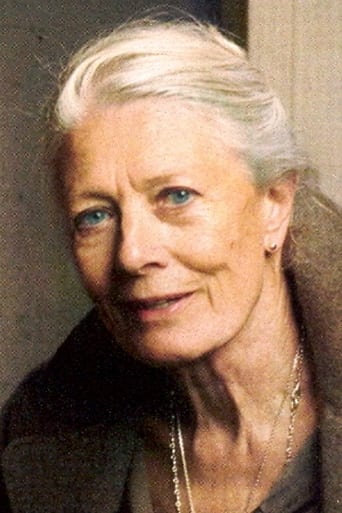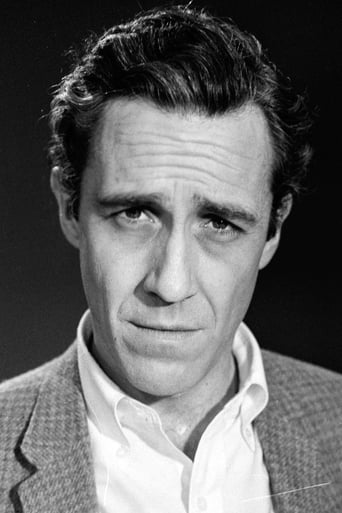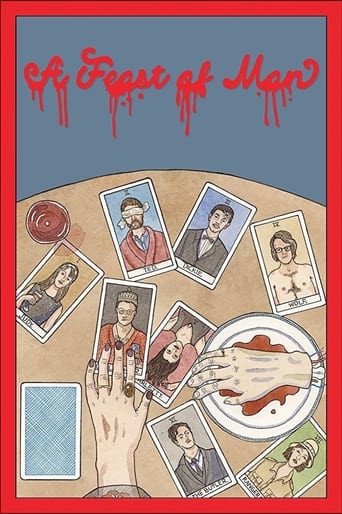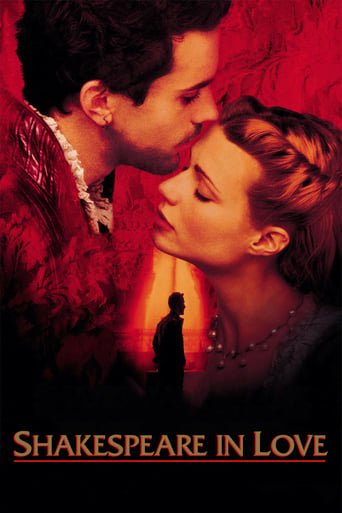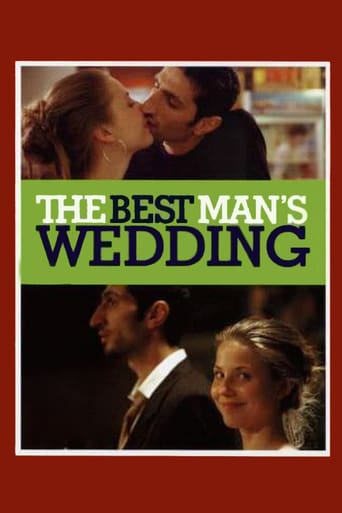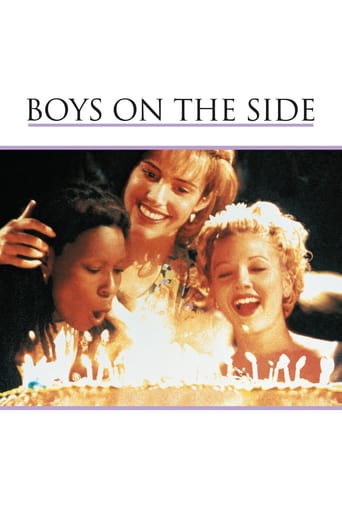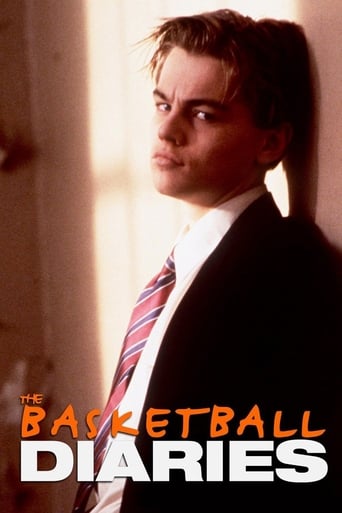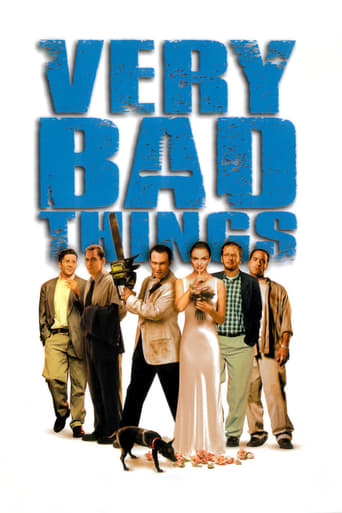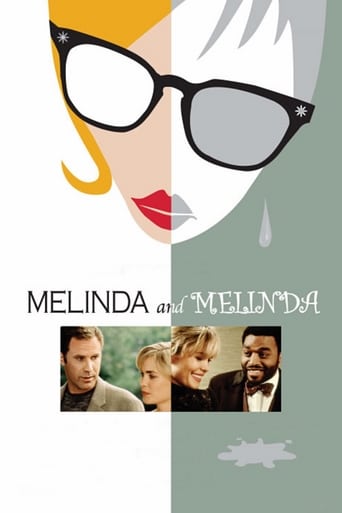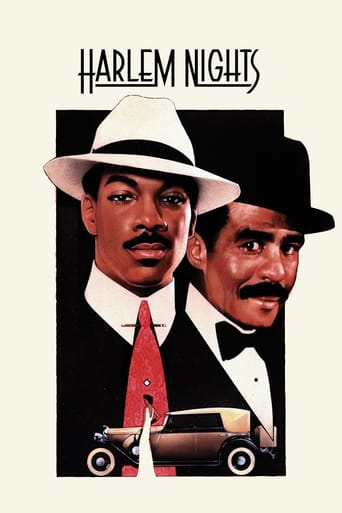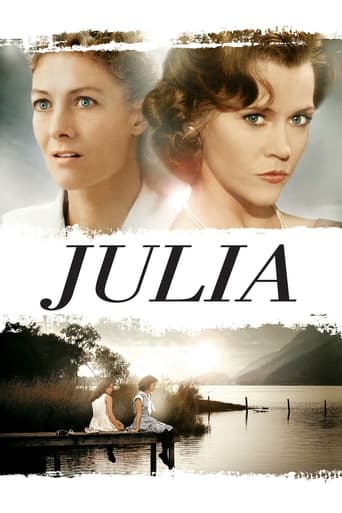
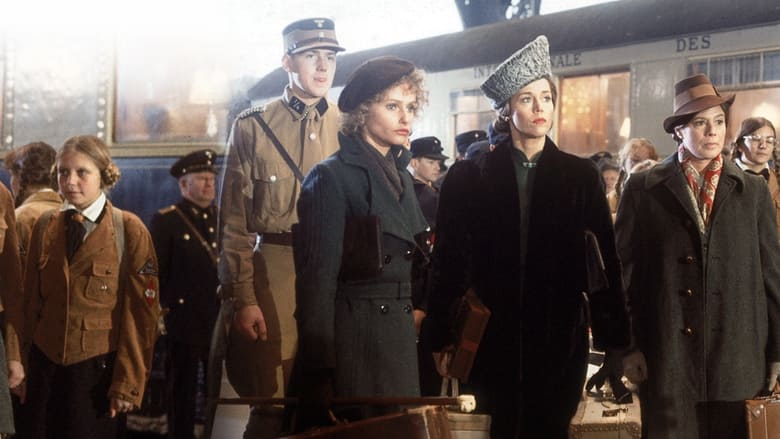
Julia (1977)
At the behest of an old and dear friend, playwright Lillian Hellman undertakes a dangerous mission to smuggle funds into Nazi Germany.
Watch Trailer
Cast


Similar titles
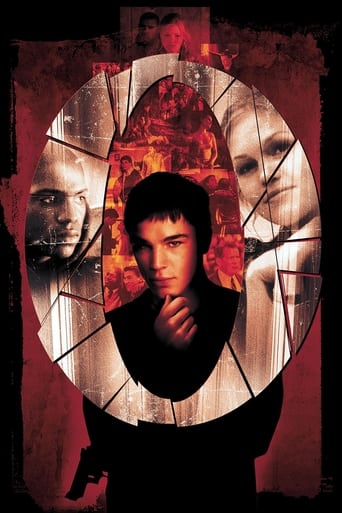
Reviews
The fact that "Julia" received 11 Academy Award nominations back in 1977 should give you some indication of what kind of movie it is. Movies don't get nominated for that many Oscars unless they are fairly palatable, tasteful, and adhere to a certain sheen of prestige. "Julia" is all of these things, but don't hold that too much against it. It also happens to be a handsome and well-made drama about a female friendship during troubled times.Apparently the film, though about real-life characters like Lillian Hellman and Dashiell Hammett, has little of truth in it and according to many is an outright fabrication. I don't really care, because I don't watch movies for their veracity; I watch them for how well they craft narratives in the language of cinema, and "Julia" does this very well. A large middle section, depicting Hellman's journey by train into Berlin during the rise of the Nazi party in order to smuggle money into the country for use by the anti-fascist underground, is one long sustained nail biter, and showcases director Fred Zinneman's ability to understate to tremendous effect. The film takes a while to get going, and an irrelevant denouement makes the film longer than it needs to be and causes it to end rather abruptly, but overall it's a very good movie.I took a while to warm to Jane Fonda's performance as Hellman. She's mannered and inauthentic in her early scenes, but her performance grew on me as the film progressed, and I came to think she earned the Oscar nomination she received. Vanessa Redgrave, who won that year's Best Supporting Actress award, is astonishing in what amounts to really only one real scene, set in a cafe after her character, the Julia of the title, is reunited with Hellman after a long separation. Both women are fascinating to watch in this scene, but Redgrave especially is mesmerizing. With very little screen time, she is able to make the presence of her character pervade virtually every single frame; even when she's not on screen, which is most of the time, you find yourself thinking about her.In addition to the nominations already mentioned, the film was nominated for Best Picture, Director, Supporting Actor (Jason Robards, who won for the second consecutive year, the only person in Oscar history to win back-to-back supporting awards), Supporting Actor (Maximilian Schell, in a puzzler of a nomination given he's barely in the film and has not much to do when he is), Adapted Screenplay (which it won), Cinematography, Costume Design, Film Editing, and Original Score.Grade: A
Julia is a story of friendship and courage between two women whose relationship is tested by the rise of fascism prior to World War II. The story centers around Lillian who is a struggling writer working on a play as she recalls memories of her childhood friend, Julia, who rebelled against her wealthy family to become a progressive radical. Over the years, as Julia became politically active, the friends see a lot less of each other. Lillian always keeps Julia in her thoughts, and they meet when they can, but the rise of fascism pulls them apart, but also brings them closer together. Lillian never fully understands Julia's political ideology or why she risks so much to fight for her ideals, but when she is called to aid in an effort to resist the Nazis by smuggling funds into Germany on Julia's behalf, she rises to the challenge. Julia is a charismatic figure, and despite only appearing on screen for a few minutes, Vanessa Redgrave's performance is inspiring, making us want to see more of her, just as Lillian wishes to. Jane Fonda plays Lillian in this beautifully crafted film by Fred Zinnemann about the power of friendship to help us rise above our fears and to do more than we think we are capable in the face of great danger.
There are movies - many of them? most of them? - that make no effort to connect with what might be called the art of cinema. That's fine. There's nothing wrong with making a movie just in the hopes of turning a profit.There are also movies - not as many, but still too many - that make every effort to connect with the art of cinema but not enough effort to engage the audience. That, in my opinion, is not so fine, but as long as I don't have to sit through them, I can't complain.And then there are movies - never enough - that connect with and advance the art of cinema not to impress critics but to enthrall audiences. Those are masterpieces, and they keep you riveted to your seat as they unfold.Julia is one such film. I first saw it in 1977 when it was released, and all these 35 years since I remembered enjoying it. This evening I watched it again, and had a chance to marvel at how well it was made. The language is often beautiful, which is appropriate in a movie about a great writer, Lillian Hellman. The images are also sometimes beautiful, which is something to be thankful for. The acting is uniformly fine. It presents Hellman's recollections of a childhood friend of hers, Julia, and her efforts to reconnect with her during the late 1930s, by which point Julia had become involved with anti-Fascist groups in Germany. We never get the details. They don't really matter, or at least didn't to me. There is no great apotheosis at the end; Hellman is not transformed by her experience. It is painful. We are made to feel that pain. The story ends.This is one of the best movie experiences I have had in quite some time. Good script writing, fine acting, and good direction can come together to make a very fine movie. Would that they did more often.
We often learn about the past from text books and documentaries which detail larger conflicts, such as the rise of Nazism in Germany which leads to the Second World War. Although understanding the larger history is certainly important, experiencing a story about how individuals and their lives are forever changed by conflict can be as important and even more enlightening. "Julia" is a film chronicling how several people's lives are changed by the rise of fascism in Germany.The story is told by and centered on Lillian Hellman (Lilli, as portrayed by Jane Fonda, academy-nominated for Best Actress) about her childhood friend Julia (Vanessa Redgrave in an academy-award winning performance) who becomes an active force against fascism in Vienna and Germany before World War II. She originally comes from a wealthy family in Britain. As a minor, Julia resides with her grandparents in a country estate larger than many small towns in the mid-west, and her young friend Lillian often visits her. The younger Lilli and Julia are played by younger actors who are nearly as convincing as their older counterparts. Unlike her grandparents, Julia shows from a young age an interest in social issues and class inequity. The narrative often juxtaposes between Julia and Lilli when they are young and their lives as adults. But even when young, Julia and Lilli engage in discussions about social injustice. At one point, Julia recounts a visit to Cairo where she sees the immense and widespread poverty. When she comments on what she sees, her grandparents say "Don't look at them." The story also has another thread: Lillian Hellman, struggling female playwright living with the immortal Dashielle Hammet at a beach house probably near cape cod or Connecticut north of New York. She strives to write a good play. Hammett is her ultimate critic, and has no sympathy when she's unable to produce to her potential. The three narratives are constantly being interspersed: Lillian as a girl with her young friend Julia, Lillian as the struggling writer with Hammett, and her friendship with Julia as an adult. At one point, she finishes her first play, "The Children's Hour", which makes her a national and international celebrity.While we mostly see Julia in flashback, we meet Julia rarely in the present-moment of the narrative. The first is a devastating incident concerning extremists infiltrating and butchering members of a hospital where Julia works, probably providing care for the needy. Then later, when she is vacationing with friends from the US South in Paris, Lilli receives a message from Julia via a strange man, Johann (Maximilian Schell) who speaks about a cause and movement against Hitler. Julia and the members of the movement request Lillian to engage in a task, which at the forefront seems simple yet is potentially dangerous. Her mission is to transport something important from Paris to Berlin while she's on her way to Moscow. Trouble is, she's never played a secret agent before.Every once in awhile, a film which is both moving and insightful appears on the screen. "Julia", which at the beginning seems more like a character study of Lilli, Hammett, and Julia, until the sequence concerning her mission turns the story into a riveting plot. Underneath the entire experience are overtones about the rages and ultimate tragedy of fascism. This is by far my favorite performance by Jane Fonda and Vanessa Redgrave, whose friendship appears like you might imagine two people who have known each other for a long time. A bit to my disappointment which in no way reflects on my view of the film, the character of Julia may be somewhat fictional. Hellman in her book Pentimento, which contains the novella entitled Julia for the which the film is based, may be a combination of fact and fiction. But either way, the story is compelling, plausible, and ultimately beautiful. Whether or not I believe in a real Julia, I believed in the character of the film and in Lilli, her beloved friend, and the story they tell.



